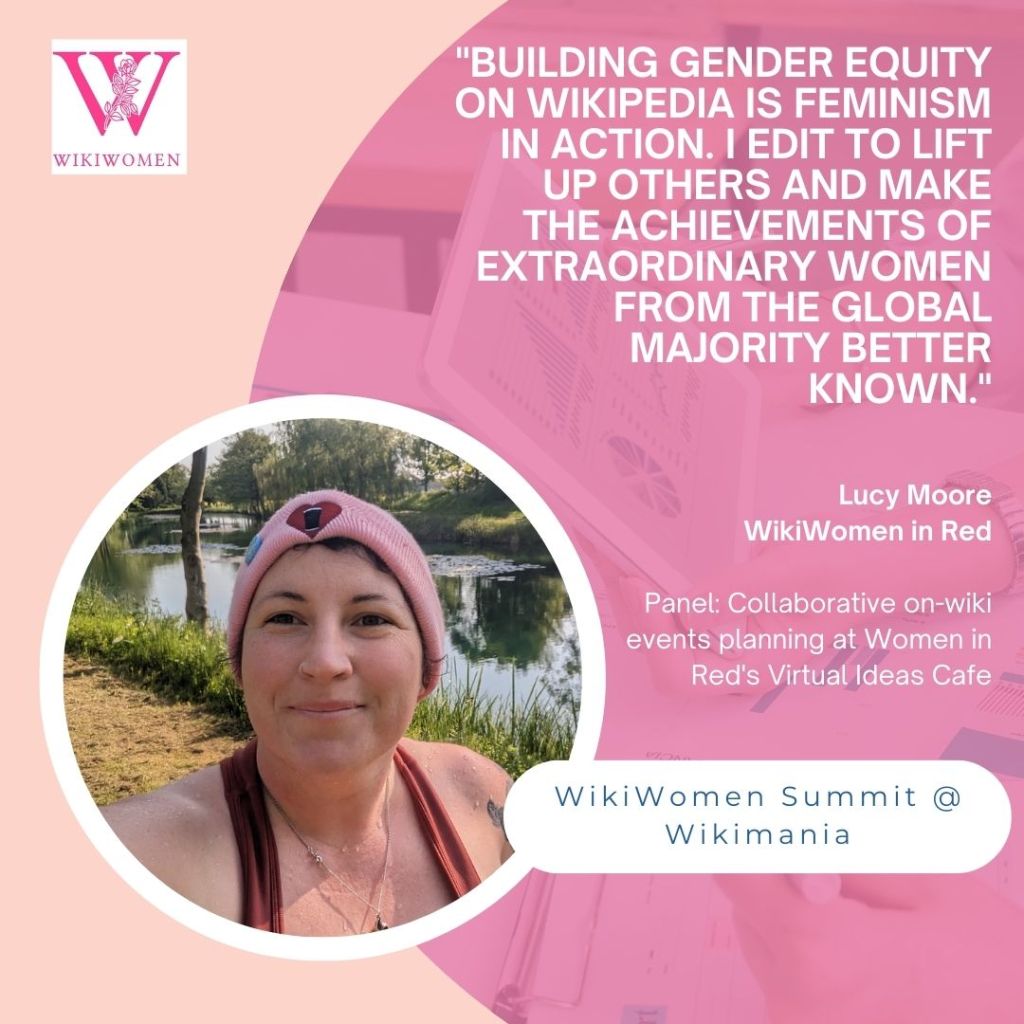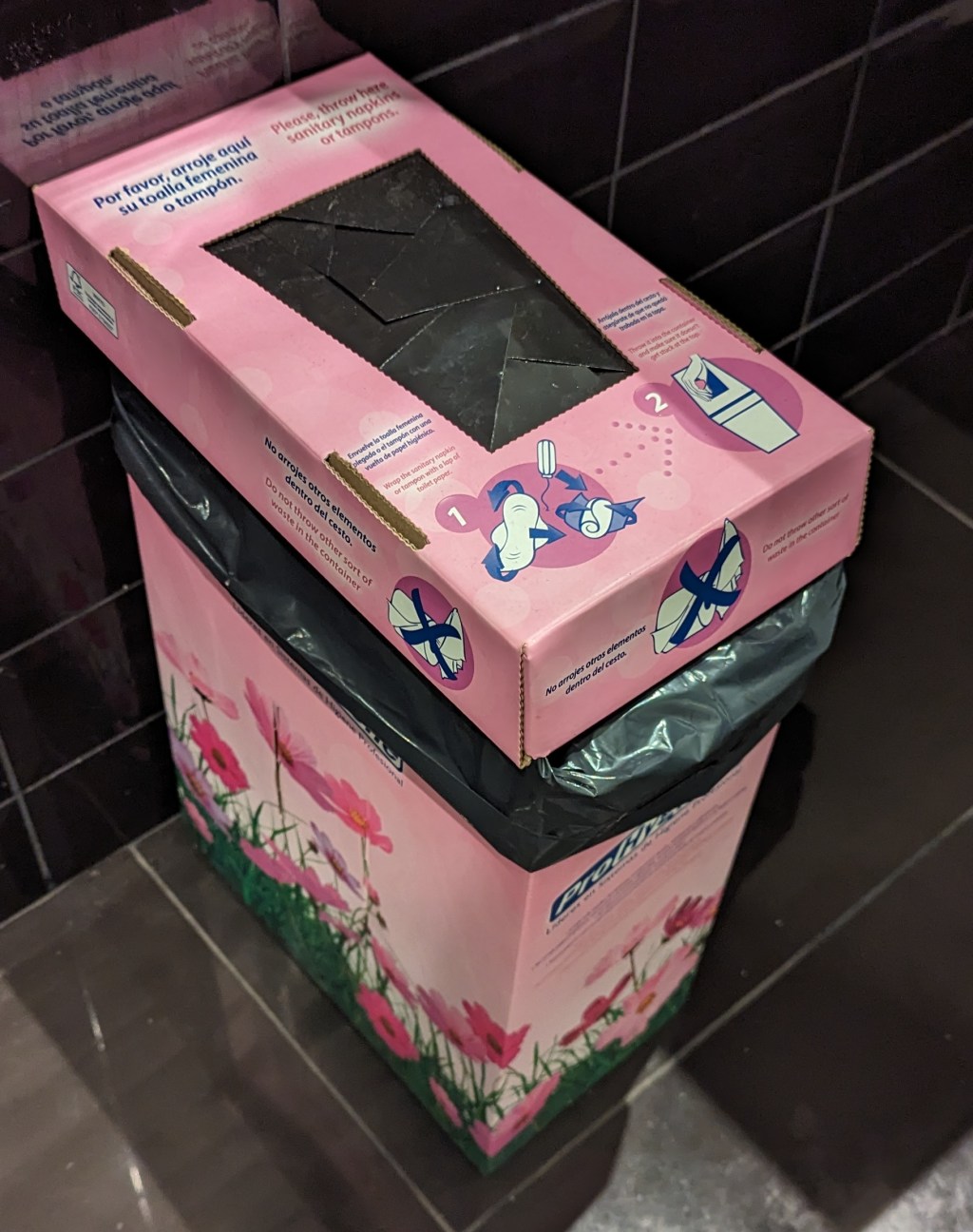Feminist solidarity comes in many forms. For me, as a white, British woman, who strives to make the best use of the privileges available to her, editing Wikipedia is closely linked to feminist activism. In 2024 I finished a challenge to write a biographical article for a woman from every country in the world. To celebrate I uploaded a video to my socials. This led to an article in the Guardian (UK), speaking on CBC radio, on Radio Scotland, a Guardian (UK) editorial, a feature on BBC World Service and speaking live on CNN International on International Women’s Day.
I first learned to edit at a training session in Leeds in 2019 organised by a project called West Yorkshire Queer Stories. At the time, I thought I wanted to edit Wikipedia to work on military history; it turned out I was wrong. At the session the trainers told us about lack of coverage for LGBTQ+ communities, but they also told us about the gender imbalance. It shocked me. My editing goals u-turned: this was something more urgent to contribute to.

With some mentoring from a friend edits, from Wikimedia UK, the #WCCWiki team and Women in Red, I found my feet. I had read a lot of novels from African writers, so by the end of 2019 I had started to focus on women from there. I wrote about women whose books I had read – Panashe Chigumadzi and Trifonia Melibea Obono – and discovered the extraordinary lives and achievements of women new to me like Sudanese human rights activists Hawa Al-Tagtaga and Fatima Talib. This led to focus on writing about women from countries that have higher gender imbalances on Wikipedia, such as Sri Lanka, Qatar and Burkina Faso. In October 2021 I decided to extend it into a global challenge. The result is 533 biographies of women (including trans women), covering every UN-recognised or partially recognised country in the world. These are some of my observations:
1. Women aren’t hard to find
The truth is, women who are notable aren’t hard to find. I saw an exhibition about LGBTQ+ activist Gloria Meneses in a plaza in Montevideo (image of square) and translated her article from Spanish Wikipedia as a result. I wrote about Mexican chef Raquel Torres Cerdán because she was mentioned in a cookery book I was using.
2. …but sources can be
Whilst there’s no shortage of women to write about – there can still be a shortage of reliable sources to support their inclusion. If you’re thinking about taking on this challenge, I’d encourage you to use dictionaries of biography or awards as starting points. I leaned heavily of the Dictionary of African Biography and the BBC 100 Women Awards.
3. Check your numbers!
I only speak English but use Google Translate often. Be cautious with it and even check the numbers: I started for Meri Avidzba, and somehow in translation numbers got confused, which led to an error being published in the Did You Know? (see here)
4. It’s very satisfying to redirect a husband to a wife’s page
Although it doesn’t happen often, it’s pretty satisfying to write an article about a woman and to add a redirect so her husband’s page goes to hers. This happens so often with the genders reversed. If you look for Frederick Waage you get to hear about his wife, Dorothy B. Waage’s achievements!
5. Content gaps extend to images and data
Writing these biographies has made me more aware of other gaps in other projects, for example around menstrual hygiene. I’m currently adding images of sanitary bins to Wikimedia Commons. When I added my first last October, there were just two images of these important objects most often found in women’s toilets and no item for a sanitary bin on Wikidata! In contrast, there were over 200 pictures of condom machines (mostly from men’s toilets)!

My round-the-world list is here and since I finished, User:Darafsh is doing it too on Farsi Wikipedia! I’d love to hear what people think, so please say hello on my talk page!

Can you help us translate this article?
In order for this article to reach as many people as possible we would like your help. Can you translate this article to get the message out?
Start translation